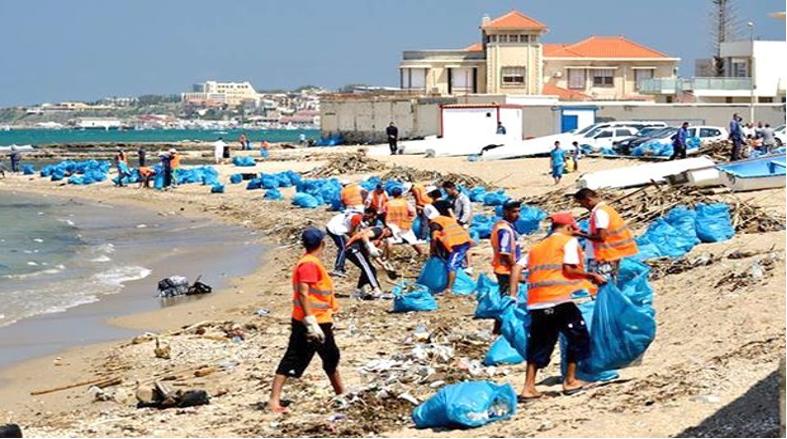The EU-funded ODYSSEA platform, as an integrated information platform, would be an important tool in the fight against marine litter, since identifying sources of rubbish and locating and mapping polluted stretches of sea and coastline requires permanent and real-time access to information, noted Saïda Laouici Boudjema, deputy general director and project coordinator at ODYSSEA’s Algerian partner Nord-Sud Ventures (NSV).

Boudjema cited reports of Algeria’s National Waste Agency (AND) concluding that combatting marine pollution requires measures allowing for effective collection and management of the waste, alongside the identification and mapping, all of which currently remains lacking.
“Waste management in Algeria remains a major ecological challenge,” stressed Boudjema, noting that tackling the problem would require developing a recycling industry, changing consumption models among the general population, raising awareness and educating the youth, as well as developing concrete partnerships for sharing know-how and skills in the field and allowing real-time, permanent access to integrated information.
“Plastic waste is the most common on Algerian beaches,” accounting for 60%-80% of the waste dumped in the country’s marine space. “This situation will worsen, since the recycling industry is failing to take off in Algeria and requires huge investments.”
Algeria is the fifth largest consumer of plastic bags in the world, Boudjema said. Algeria generates an annual volume of 34 million tonnes of waste, which is expected to more than double by 2035, exceeding 70 million tonnes, she added, citing AND studies. This figure includes organic waste and other forms of packaging rubbish, in addition to the plastics. The market value of the current amount of waste, as raw material for recycling, would be around 300 million euros, Boudjema noted.
“With less than 10% of waste recycled or recovered, the need for a real national strategy based on the recovery and recovery of waste is a major issue for sustainable development,” she argued. “Switching from traditional waste management to a circular economy [recycling] would make it possible to recover on average 30 to 40% of waste. This is an economy that will allow, according to estimates, the creation in a first stage of around 100,000 jobs, including 40,000 direct jobs.”
On the positive side, Boudjema cited several government initiatives that are beginning to tackle these problems, including efforts to collect waste. Algeria’s Council of Ministers, chaired by President Abdelmadjid Tebboune, convened in January 2021 to examine the marine plastic waste management in the context of the fishing industry, with the aim of enhancing fishery production capacities and contributing to the development of “a clean and sustainable blue economy”, Boudjema noted.

